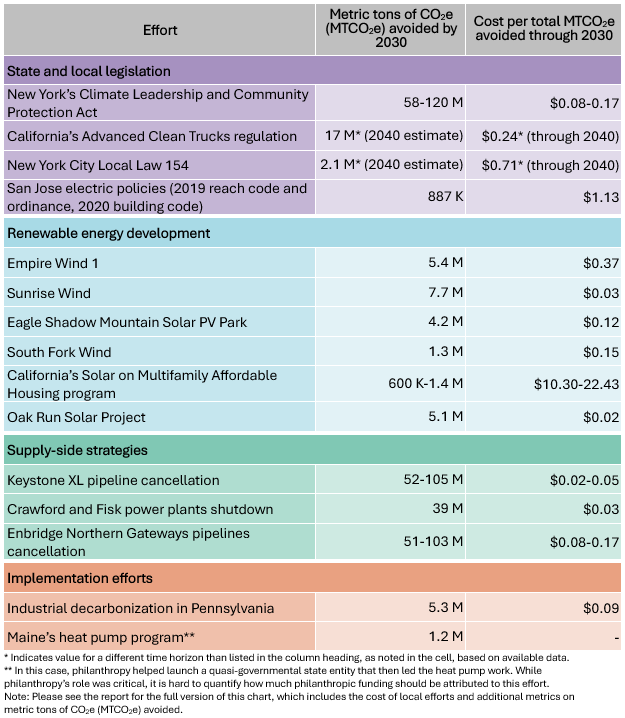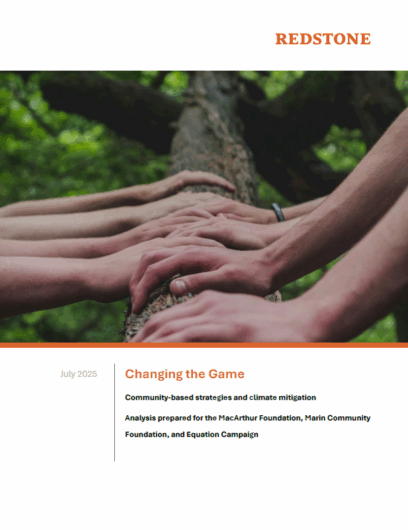New analysis demonstrates high benefit with low cost per ton of carbon reduced
 Redstone’s recent report, “Changing the Game,” compiles, for the first time, the direct, quantifiable carbon mitigation impacts of community-based climate work. The results are exciting: community-based strategies can yield meaningful mitigation impacts with strong returns on investment. Many of the efforts profiled in the United States and Canada will mitigate 1 to 8 million metric tons of carbon dioxide equivalent (MTCO2e) by 2030, with some mitigating significantly more. The cost per effort is well under $1 of local philanthropic investment per MTCO2e mitigated through 2030.
Redstone’s recent report, “Changing the Game,” compiles, for the first time, the direct, quantifiable carbon mitigation impacts of community-based climate work. The results are exciting: community-based strategies can yield meaningful mitigation impacts with strong returns on investment. Many of the efforts profiled in the United States and Canada will mitigate 1 to 8 million metric tons of carbon dioxide equivalent (MTCO2e) by 2030, with some mitigating significantly more. The cost per effort is well under $1 of local philanthropic investment per MTCO2e mitigated through 2030.
The report analyzes 15 case studies from the US and Canada to understand the carbon mitigation impact and return on investment (ROI) of community-based climate strategies. The efforts spanned state and local legislation; renewable energy development; supply-side strategies; and implementation efforts.
The report was prepared for Marin Community Foundation, the John D. and Catherine T. MacArthur Foundation, and Equation Campaign.
Overview of case studies’ ROI

Findings
This report draws on research of climate efforts and input from over 40 climate experts, practitioners, organizers, and funders. The new analysis demonstrates that:
- Community-based strategies yield meaningful, scalable, and durable results for reducing greenhouse gas emissions. When communities have a direct stake in an effort, they stand up to protect it. Local projects can generate durable support based on the direct employment, health, or equity impacts on residents’ lives.
- Community-based strategies are essential to making progress on climate. They create state and local level wins that add up to national progress. They can leverage state and local governments’ abilities to advance climate solutions (e.g., building permits, public transportation, land use authorizations for pipelines or renewable energy facilities), which is even more important given federal roadblocks.
- Local engagement and partnership are needed to ensure that national strategies and policies produce their intended impact (e.g., by having the ability to implement national efforts).
- Community-based strategies strengthen our democracy. Community-based investment can protect local organizations under attack and increase civic engagement, a cornerstone of a healthy democracy.
Learn more
Do you have any questions about the report’s background, content, or implications for your own work? Please reach out. We’d love to help.
